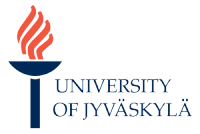Reporting terrorism is riddled with pitfalls, warns Charlie Beckett, of London School of Economics. Beckett reviews the contemporary practices of making news on terrorism, and the issues thereof, in a new Tow Center for Digital Journalism report.
Covering a breaking news event, especially one as dramatic as an unfolding terrorist attack, puts great strain on journalists, Beckett writes. Too little time to reflect and verify may lead to journalists aiding the terrorist’s cause, spreading false information, and taking implicit political stands.
Some news organisations have already taken measures in order to counteract the issues, Beckett notes. This may entail reformed editorial structure, guidelines on terminologies, or slowing down the retransmission of unverified information.
The author also presents his own recommendations for better terrorism coverage. Among others, Beckett advises journalists to be more transparent “about their sources and the limits of their knowledge”.
Picture: A worker stands at Ground Zero Wednesday, Oct. 3, 2001, in New York City, by Paul Morse. Public domain.















